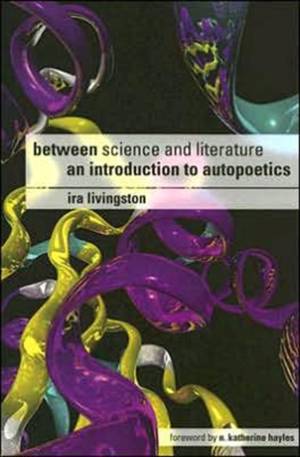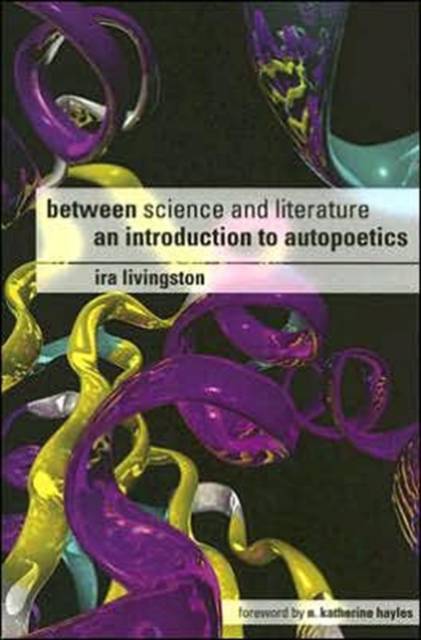
- Retrait gratuit dans votre magasin Club
- 7.000.000 titres dans notre catalogue
- Payer en toute sécurité
- Toujours un magasin près de chez vous
- Retrait gratuit dans votre magasin Club
- 7.000.000 titres dans notre catalogue
- Payer en toute sécurité
- Toujours un magasin près de chez vous
30,95 €
+ 61 points
Description
Between Literature and Science follows through to its emerging 21st-century future the central insight of 20th-century literary and cultural theory: that language and culture, along with their subsystems and artifacts, are self-referential systems. The book explores the workings of self-reference (and the related performativity) in linguistic utterances and assorted texts, through examples of the more open social-discursive systems of post-structuralism and cultural studies, and into the sciences, where complex systems organized by recursive self-reference are now being embraced as an emergent paradigm. This paradigmatic convergence between the humanities and sciences is autopoetics (adapting biologist Hubert Maturana's term for "self-making" systems), and it signals a long-term epistemological shift across the nature/culture divide so definitive for modernity. If cultural theory has taught us that language, because of its self-referential nature, cannot bear simple witness to the world, the new paradigmatic status of self-referential systems in the natural sciences points toward a revived kinship of language and culture with the world: language bears "witness" to the world.
The main movement of the book is through a series of model explications and analyses, operational definitions of concepts and terms, more extended case studies, vignettes and thought experiments designed to give the reader a feel for the concepts and how to use them, while working to expand the autopoetic internee by putting cultural self-reference in dialogue with the self-organizing systems of the sciences. Along the way the reader is introduced to self-reference in epistemology (Foucault), sociology (Luhmann), biology (Maturana/Varela/Kauffman), and physics and cosmology (Smolin). Livingston works through the fundamentals of cultural, literary, and science studies and makes them comprehensible to a non-specialist audience.
The main movement of the book is through a series of model explications and analyses, operational definitions of concepts and terms, more extended case studies, vignettes and thought experiments designed to give the reader a feel for the concepts and how to use them, while working to expand the autopoetic internee by putting cultural self-reference in dialogue with the self-organizing systems of the sciences. Along the way the reader is introduced to self-reference in epistemology (Foucault), sociology (Luhmann), biology (Maturana/Varela/Kauffman), and physics and cosmology (Smolin). Livingston works through the fundamentals of cultural, literary, and science studies and makes them comprehensible to a non-specialist audience.
Spécifications
Parties prenantes
- Auteur(s) :
- Editeur:
Contenu
- Nombre de pages :
- 208
- Langue:
- Anglais
Caractéristiques
- EAN:
- 9780252072543
- Date de parution :
- 26-10-05
- Format:
- Livre broché
- Format numérique:
- Trade paperback (VS)
- Dimensions :
- 151 mm x 219 mm
- Poids :
- 326 g







